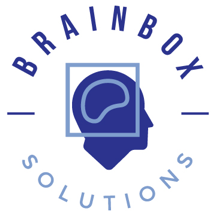 RICHMOND, Va., Nov. 14, 2022 /PRNewswire/ — BRAINBox Solutions today announced that the company has enrolled the 1,000th patient in the pivotal, HeadSMART II study of its concussion diagnostic and prognostic test, BRAINBox TBI. The multi-national, multi-site, trial is designed to support an application for regulatory clearance by the U.S. FDA.
RICHMOND, Va., Nov. 14, 2022 /PRNewswire/ — BRAINBox Solutions today announced that the company has enrolled the 1,000th patient in the pivotal, HeadSMART II study of its concussion diagnostic and prognostic test, BRAINBox TBI. The multi-national, multi-site, trial is designed to support an application for regulatory clearance by the U.S. FDA.
“We are developing the BRAINBox TBI (Traumatic Brain Injury) test as the first objective test to aid in the diagnosis of concussion and to provide an assessment of the risk of post-concussive symptoms,” said Donna Edmonds, BRAINBox Solutions’ CEO. “We are now in the home stretch of this very important study for the field. We believe the test has great potential to change clinical practice in the diagnosis and management of concussion and will define for the first time, objective diagnostic criteria for this condition, termed Acute Traumatic Encephalopathy (ATE). As such, the trial has been rigorously designed in collaboration with leading experts in traumatic brain injury and emergency medicine. The study evaluates patients in multiple settings and includes state of the art expert adjudication panels.”
She added that the current study is being conducted in adults (18 years old or older). A separate National Institutes of Health-supported, multi-center study in geriatric subjects is expected to begin enrollment in late 2022 to establish a geriatric specific test for diagnosis and prognosis. Additionally, the company is engaged a Pilot Study for a Pediatric Test for individuals under the age of 18, aimed at the same claims as the adult study.
The BRAINBox TBI multi-modal test combines clinical data, neurocognitive testing, symptom reporting and blood-based biomarkers, with proprietary AI algorithms to generate an objective score for diagnosis up to 96 hours from the time of injury. In addition, a prognosis report is generated, providing the likelihood of injury-related symptoms occurring at 30 days and up to three months after the event. The clinical study sites were selected to reflect real world practice and include Level I Trauma Centers, Emergency Departments and Urgent Care settings in systems and community-based hospitals.
The HeadSMART II study’s primary endpoints include ATE diagnosis, as determined by the BRAINBox TBI test, compared with the Gold Standard diagnosis and the test’s ability to predict persistent symptoms up to 90 days after an ATE diagnosis.
The Gold Standard for diagnosis is determined by an adjudication committee of clinical experts blinded to the test results. Two randomly selected experts each make a diagnostic determination based on evaluation of the clinical information, including imaging and neurological assessments. If there is discordance, a third expert performs an independent review and serves as the tie breaker. There is a similar expert adjudication process for neuroimaging data from participants who receive a head CT scan or MRI as part of standard of care.
Adjudicated TBI patients are stratified as having high or low risk for post-concussive symptoms in each symptom category, based on biomarker and neurocognitive testing.
The design and oversight of the study is being conducted by leading experts in emergency medicine and neurotrauma, including: W. Franklin Peacock MD FACEP, Principal Investigator, and Professor of Emergency Medicine and Vice Chair for Research in the Department of Emergency Medicine at Baylor College of Medicine; Damon Kuehl, MD, Vice Chair for Research in the Department of Emergency Medicine for Carilion Clinic and Vice Chair of the Virginia Tech Carilion School of Medicine’s Department of Emergency Medicine; and Ramon Diaz-Arrastia, MD, PhD, Professor of Neurology, Director, Clinical TBI Research Center, University of Pennsylvania, Perelman School of Medicine, all of whom are enrolling subjects in the study. Drs. Peacock, Kuehl and Diaz-Arrastia, also serve on the BRAINBox Solutions Scientific Advisory Board (SAB).
Additional SAB members who have been active in the study design and oversight are SAB Chairman, David Okonkwo MD PhD, Professor at University of Pittsburg Medical Center and Director, Neurotrauma Clinical Trials Center, Director, Scoliosis and Spinal Deformity Program and Special Advisor, UPMC Enterprises; and Alan Wu, Professor Laboratory Medicine, Chief, Clinical Chemistry Laboratory, SFGH, and Chief, Clinical Pharmacogenomics Laboratory, UCSF.
Additional information on the clinical trial can be found here at clinicaltrials.gov. The HeadSMART II study protocol was published in December, 2021 in Frontiers in Neurology.
About BRAINBox Solutions
BRAINBox Solutions, Inc is developing the first AI‐enabled, multi‐modality approach for the diagnosis and prognosis of Mild Traumatic Brain Injury, commonly referred to as a concussion. The company seeks to establish a clinical best‐practice standard for the diagnosis and prognosis of concussion. The product incorporates a panel of proprietary, patented blood biomarkers that can be read in a few moments on a point‐of‐care instrument or using standard laboratory systems, as well as neurocognitive testing, to provide a single‐system score that measures the severity of the injury and post-concussive symptoms. The company is led by key physician and scientific thought leaders in the field and an experienced, clinically focused management team. Learn more at: www.brainboxinc.com
For more information, contact:
Donna Edmonds
CEO
1‐804‐724‐0009
SOURCE BRAINBox Solutions, Inc.
